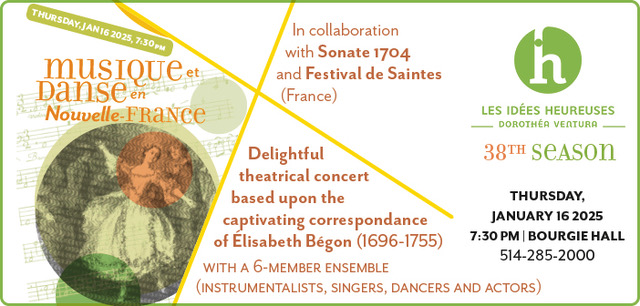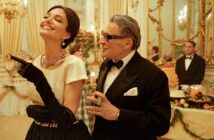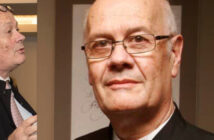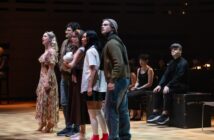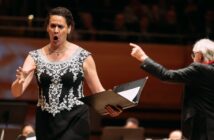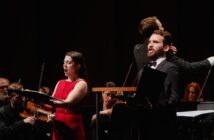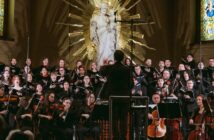It is now common parlance to note that even up until the early 1980s, Dvořák’s 1901 opera Rusalka was little-seen outside of its native Czech land. Since then, and it seems even more true in recent seasons, it has become a staple at major houses throughout Europe, the U.K. and even in North America. However, it had never been presented by the Hungarian State Opera barring two guest productions from Bratislava and Prague in 1956 and 1976. That neglect has now finally been corrected with János Szikora’s brilliant new production that premiered on January 27, and which I saw on February 7.
At first glance, it would be tempting to label this as a “traditional” production. Visuals recall the period of composition, especially the costumes by Kati Zoób with their sinuous, nature-inspired designs, clearly patterned after the flamboyant femme fatales of the great Czech Art Nouveau artist Alphonse Mucha. But Szikora’s vision goes well beyond surface splendour to encompass the era’s groundbreaking discoveries in psychoanalysis as exemplified by the work of Sigmund Freud.
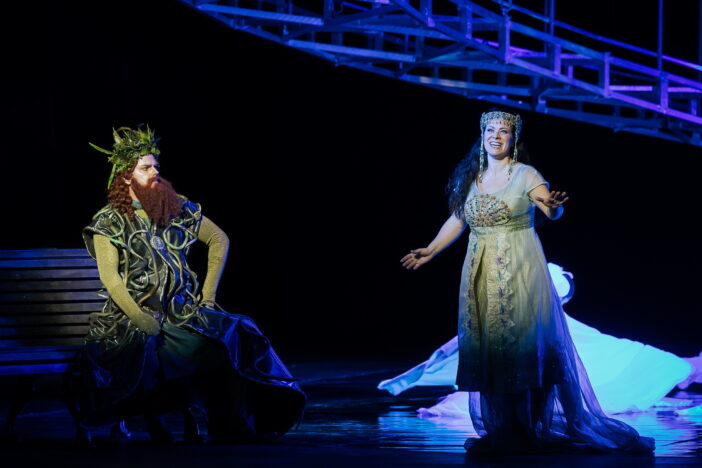
Károly Szemerédy (Vodnik) and Andrea Brassói-Jőrös (Rusalka) in Hungarian State Opera’s Rusalka. Photo: Attila Nagy
This is most clearly illustrated in Rusalka’s first encounter with the witch Ježibaba, when she begs to be transformed from water sprite into a human so that she might enter into a relationship with the Prince. In this scene, many productions don’t get much beyond a kind of cliched “hocus pocus, now you’re a woman”, but here, the witch has Rusalka smoke an hallucinogen resulting in the surprise appearance of a life-size, fur-suited version of Ježibaba’s cat with whom Rusalka frolics. Elsewhere Szikora alludes to Freud’s case studies of women, portraying Rusalka as visibly haunted by her desire to become human, but then likewise, devastated when she cannot meet the Prince’s expectations for a physical relationship.
Soprano Andrea Brassói-Jőrös more than handles the complex dramatic arc demanded in Szikora’s concept, and is close to vocally ideal for the role. She clearly maps the vicissitudes of the character’s journey throughout – witness her quick transition from Rusalka’s serio-comic “high” after smoking at Ježibaba’s lair, followed by a sudden, despairing crash when she hears Vodnik’s offstage words of warning about her future prospects with the Prince. Vocally, Brassói-Jőrös’s soprano is very clean-toned with the ability to easily project over the large orchestra in her middle and lower range. Top notes emerge full, clear and beautiful. An exciting role debut for this young Hungarian artist.
The production is evenly-cast throughout right down to the smaller comprimario roles. As the Prince, tenor Zoltán Nyári has just the right amount of vocal heft for this demanding role, and he manages to inject some depth into this far-from-sympathetic character. As Ježibaba, mezzo-soprano Erika Gál did not settle for a one-note portrayal, showing sympathy for Rusalka’s flawed desire to enter the human realm. Gál’s powerful instrument was in complete command in both of her major scenes.
The Foreign Princess, who is only too happy to fulfil the Prince’s physical desires when Rusalka cannot, is perfectly tailored to soprano Szilvia Rálik’s powerful, Wagnerian-sized instrument. In a stunning, caped gown with a telling dragon design on its back, Rálik revelled in the role’s opportunities for glamour and verging-on-camp bitchiness. As Rusalka’s father, the water goblin Vodnik, baritone Károly Szemerédy projected rich tone even into the role’s higher reaches and was a sympathetic support to his cursed daughter throughout.
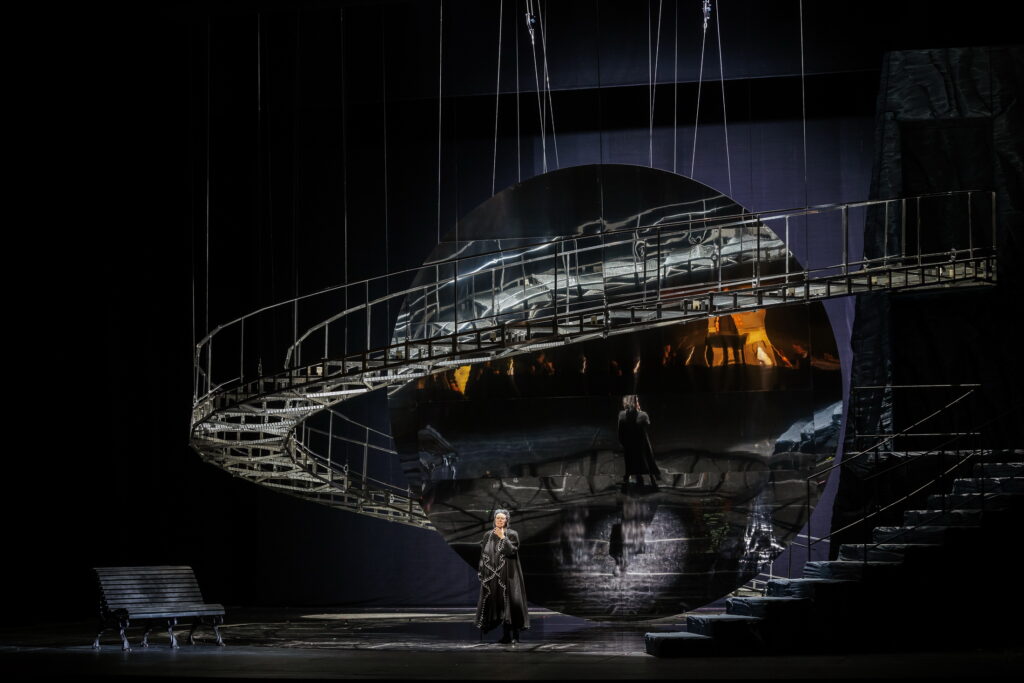
Andrea Brassói-Jőrös (Rusalka) in Hungarian State Opera’s Rusalka. Photo: Attila Nagy
Éva Szendrényi’s set design reached beyond the costume’s Art Nouveau inspirations to encompass other major art movements of the period, most strikingly, Act II’s homage to Scottish Arts and Crafts designer, Charles Rennie Mackintosh. This was most clear in the geometric, wooden slatted bed that symbolically dominated the stage, functioning as Rusalka’s refuge, but also a reminder of her inability to consummate her human relationship. The act’s stylization extended to its brilliant opening sequence for dancers dressed as servants à la Downton Abbey, preparing a feast at the Prince’s palace. Arranged on different levels of a Mackintosh coloured grid, they brilliantly-executed Adrienn Rafai-Vetési’s stylised “pass the sausage” choreography with great humour.
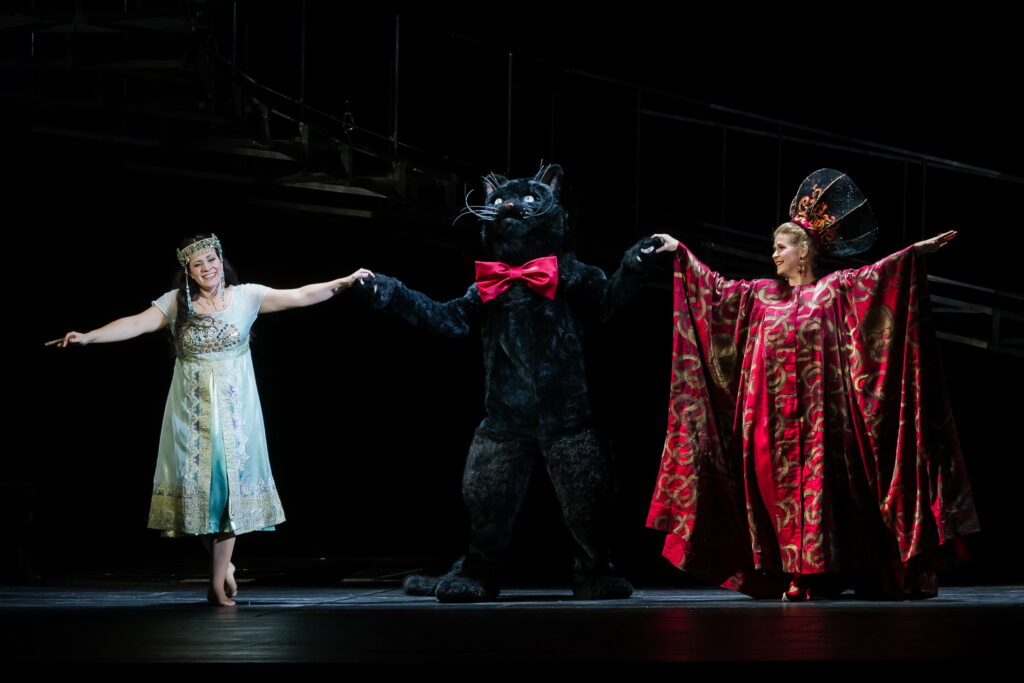
Andrea Brassói-Jőrös (Rusalka) and Erika Gál (Ježibaba) in Hungarian State Opera’s Rusalka. Photo: Attila Nagy
Péter Halász, the company’s music director from 2013-16, led the Hungarian State Opera Orchestra in a rich, nuanced performance. This was a refined account of a score that verges on the symphonic, and was never allowed to overwhelm the soloists. An auspicious addition to this company’s repertoire which will no doubt see many revivals in seasons to come.
Rusalka is playing again Feb. 11, 2024 : www.opera.hu/


